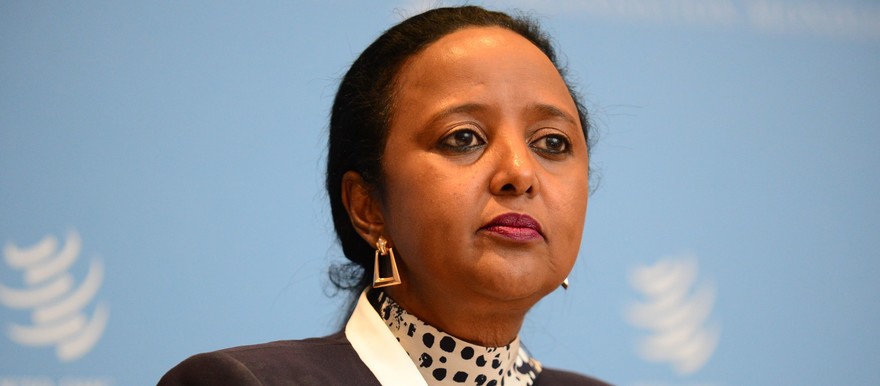Foreign Minister of Kenya Amina Mohamed has declined to clarify whether Kenya is prepared to take ‘punitive measures’ against the South Sudanese warring parties, as threatened by East African nations in a June communiqué.
Speaking at a press conference in Nairobi today, she instead suggested that such measures should not be considered until after another six months.
Last June the Prime Minister of Ethiopia chaired a summit meeting of the Intergovernmental Authority on Development (IGAD), which resolved that “IGAD Member States will take further collective action to pressure any party who fails to honour its commitments.”
Ethiopia, Kenya and the other IGAD member states threatened that this collective action could include “imposition of punitive measures” against violators of the ceasefire or obstructers of the peace talks.
According to Amina Mohamed, “Anybody who is a spoiler will be held responsible and accountable.” When pressed, however, she declined to elaborate on what measures Kenya could take and under what circumstances.
The foreign minister was asked specifically about a list of ceasefire violations prepared by IGAD. The list recommended that the IGAD Special Envoys take “appropriate action” against identified perpetrators.
She responded, “We’ve agreed that we are going to have six months, we are going to monitor them for six months and then after that because we will have a clear picture.”
“Right now most of the violations have been committed by the opposition – the government has responded and the government has committed some of its own, but it’s far less than what the opposition has done.”
The minister noted also that she met recently a delegation of UN Security Council member states visiting Kenya, saying, “We have agreed on a way forward, which obviously I’m not going to discuss.”
She went on to suggest that Kenya’s own policy on the South Sudan crisis would be informed in part by talks that would take place in New York.
“We need to see what’s going to happen until we go to New York for the General Assembly, see, because the president of South Sudan will be at the General Assembly so we’re going to have further summit at the heads of state and the Secretary General of the UN, and the members of the Security Council in New York, to continue discussing on South Sudan.”
She then elaborated on a number of non-coercive measures supported by the Kenyan government to help address the crisis in South Sudan, saying she was optimistic after the IGAD summit earlier this week.
“The fact that we have monitoring teams on the ground, the fact that we are contributing as a region to the troops that are protecting the monitoring and verification teams, the fact that there are negotiators sitting in Addis every day – I’m actually more hopeful coming from this summit than I was before.”
Related:
Full text: IGAD summit decisions on South Sudan crisis (11 June)




